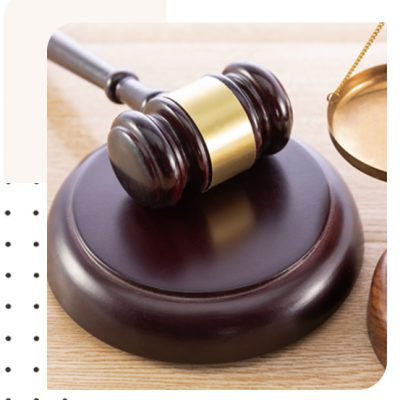AUTHENTICATION AND LEGALIZATION
Home >> AUTHENTICATION AND LEGALIZATION
Brief Definition

Brief Definition
A Power of Attorney (POA) is a legal document representing a written authorization given to another person to act on your behalf in private, business or legal matters. It is an excellent option to hand over your responsibilities to a person you trust in case you come across uncertain situations in the future where your decision-making capability is hampered.

Why Have Your Documents Authenticated and Legalized?
For countries that are not members of the Hague Apostille Convention, Legalization at their embassy or consulate is still required before documents Authenticated at DFAIT or Provincial Government will be accepted in those countries. Accordingly, for these set of non-member countries, DFAIT and Provincial Governments will continue to issue Certificate of Authentication as opposed to outright Apostille Certificate.
The authentication and legalization process removes the burden on foreign courts and authorities to check a person’s documents for validity outside their country of origin. It is also done to help a person pass through legal procedures in a foreign nation without any hassles.
The most commonly used method to have documents validated for use in international jurisdictions is to get an Apostille certificate. However, this only applies when both countries have signed the Hague Convention (1961) for Abolishing the Requirement of Legalization for Foreign Public Documents. Since Canada has signed the agreement and it came into effect on January 11, 2024, notaries in Canada can now provide apostille certificates where the document is going to a member country. However, where the document is to be used in a non-member country, notaries in Canada can only provide Certificate of Authentication from DFAIT and Provincial Governments, which they will have to forward to the embassy or consulate of the non-member country for Legalization.
Notarizers’ certified notaries in Canada will provide the equivalent of an apostille certificate by having your document authenticated and legalized. It is a two-step process that involves the following.
Authentication
The document is first checked for authenticity by the Department of Foreign Affairs and International Trade (DFAIT) or provincial authentication departments such as the Government of Ontario’s Management Board Secretariat (Official Documents Services) or Alberta’s Department of Justice’s branch of Official Documents and Appointments.
They will authenticate the official signature on the documents by cross-
checking with their registry. They will also compare the seal and signature of the notary on the documents with their existing records.
Once they verify the notary’s authority, signature and seal and are satisfied that the documents are genuine, they affix their stamp, seal and official signature on them. The authenticated documents will be accompanied by a statement from the authenticating authority stating that the notary was a duly appointed Notary Public at the time of subscribing to the document.
Parties Involved
The person authorizing another to act is known as the ‘principal grantor’ of the power, while the person authorized to act is known as the ‘agent’, sometimes also called an ‘attorney’ or a ‘representative’.Why is a POA Required?
A Power of Attorney is mainly made for situations in which you need someone to make the decisions if you’re experiencing difficulties in management or feel that you’ll be medically unfit in the near future, rendering you incapable of making sound decisions.Types of Power of Attorney
There are two types of Power of Attorney that are made: Power of Attorney for Property and Power of Attorney for Personal Care (or Health).Legalization
Authenticated documents need to be submitted to the consulate or embassy of the destination country in which you want to use your documents to get them legalized. They will confirm the authenticity of the seal, stamp and signature on the documents from DFAIT or Provincial Government and ensure that they meet all the applicable requirements to be valid in the foreign jurisdiction after legalization.
After they conduct a satisfactory check, they will affix their stamp or certificate directly to your documents. This step completes the authentication and legalization process and gets your documents legal authority in the foreign country.
Charges
We charge $40 for the first notarization and $15 for each subsequent notarization. Our fees range from $8 to $40 per notarization, depending on the number of documents you are notarizing, with the fees reducing based on the number of documents. To find out more about our Power of Attorney services and set up an appointment, call us at 416-782-5926 or 1-888-672-7266 (toll-free).
Types of Documents
Our notaries have well-established relations with the Foreign Affairs department and Foreign Embassies and Consulates. We can help you authenticate and legalize documents all types of documents, including:
- Affidavits
- Birth certificate
- Certificate of Origin
- Marriage certificates
- Police check
- RCMP Police Clearance Certificates
- Power of Attorney
- International Trade Certificates

To get in touch with us, please fill out the inquiry form on our website’s homepage or email us your address, contact details, and requirements at info@notarizers.ca, and we’ll get back to you as soon as possible or call us at 1-888-672-7266.
Business hours
11am – 6pm Monday to Friday
1pm – 5pm on Saturdays or any other time by appointment.
Contact us:
94 Via Bagnato, Toronto, Ontario, M6A 2S1 CANADA
(Located Across the Playground Behind Shoppers Drug Mart at 770 Lawrence Ave W)(The Road that leads to Shoppers Drug Mart at 770 Lawrence Ave W is called Via Bagnato)
(We are in one of the Commercial Units of the Treviso 3 Condo at 3091 Dufferin Street. The Road at the
Back of the Condos is Called Via Bagnato. Please Drive in or Walk in Through the Shoppers Drug Mart
road at 770 Lawrence Avenue W)
Tel:416-782-5926 Fax: 416-782-2286, Email: Info@Notarizers.ca




